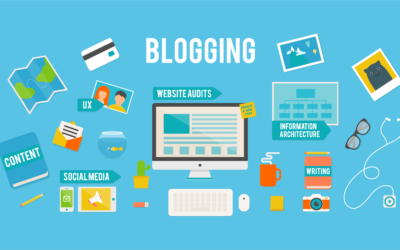What is PPC?
BACK TO BLOGSPPC Advertising
Digital marketing is a world of acronyms and abbreviations – from CRO to CTR and SEO to SEM, it’s a never-ending mixture of letters and numbers! But there’s one acronym we want to dive a little deeper into in this article – so let’s take a jump into the world of PPC advertising!
What is PPC?
PPC simply stands for Pay-Per-Click. Pay-Per-Click advertising is a form of digital marketing whereby advertisers, businesses, or a PPC agency pay a small fee every time their ads are clicked by audience members. This form of advertising is not deemed ‘organic’ as the traffic itself has been purchased.
What is PPC used for?
PPC advertising lends itself to a number of applications, from selling products to generating new leads.
The main use cases for PPC include:
Increasing sales
Developing brand awareness
Nurturing and re-engaging leads
Improving product exposure
Types of PPC Advertising
There are a number of different types of PPC advertising, however the most common type is paid search.
Paid search allows marketers to display their ads against relevant user searches and purchase intent. As such search engines such as Google and Bing are often the most used platforms for PPC advertising.
Both Google Ads, and Microsoft Ads implement real-time bidding. Real-time bidding is a complex process whereby advertising inventory is ‘sold’ in private automated auctions. However, having your search ads appear is not as simple as placing the highest bid, instead both search engines consider additional factors such as ad relevancy, advertising validity and overall ad quality.
Other types of PPC advertising includes:
Display Advertising: These are the banner ads you see across the web and are often visual in presentation. These ads are often referred to as ‘banner ads’ given their shape and style.
Retargeting: The ads that follow you around! We’ve all been caught out browsing for a new pair of trainers and have then been followed around by an ad telling us to ‘complete our purchase’ for the next week! Well, it’s retargeting ads that allow marketers to deliver such campaigns.
Social Ads: This type of PPC advertising allows marketers to showcase their ads on social media platforms. There are a number of social ad types, including sponsored posts and video adverts.
Shopping Ads: Shopping ads are built around products, and present audience members with promoted listings and the ability to efficiently purchase products.
Instream Ads: This form of PPC advert is most widely used on YouTube, and come in the form of videos. They often appear part-way through a posted video, and are used to promote businesses and increase brand awareness.
How much does PPC cost?
Unfortunately, there is no simple answer to this question, as the final amount paid is dependent on a number of external factors such as competition and quality.
Given the nature of PPC advertising, it often best to consult with an expert PPC agency to establish the most relevant and cost-effective approach for your businesses. At GForce Web Design, we understand that PPC can seem like a daunting process, and as such we take the time to research and evaluate potential risks and alleviate spending loopholes by recommending appropriate budgets.
Benefits of PPC
PPC advertising offers a large selection of benefits to marketers and businesses. The main benefits of this adverting technique include:
- Effective Tracking: Results are easy and simple to track as data is live and can be viewed in real-time.
- Fast Results: PPC advertising offers an instant route to audience members, and as such achieving valuable results can often be far quicker when compared to other techniques
- Diverse Control: Given the nature PPC, the platforms used provide granular control over targeting and budget allocation.





